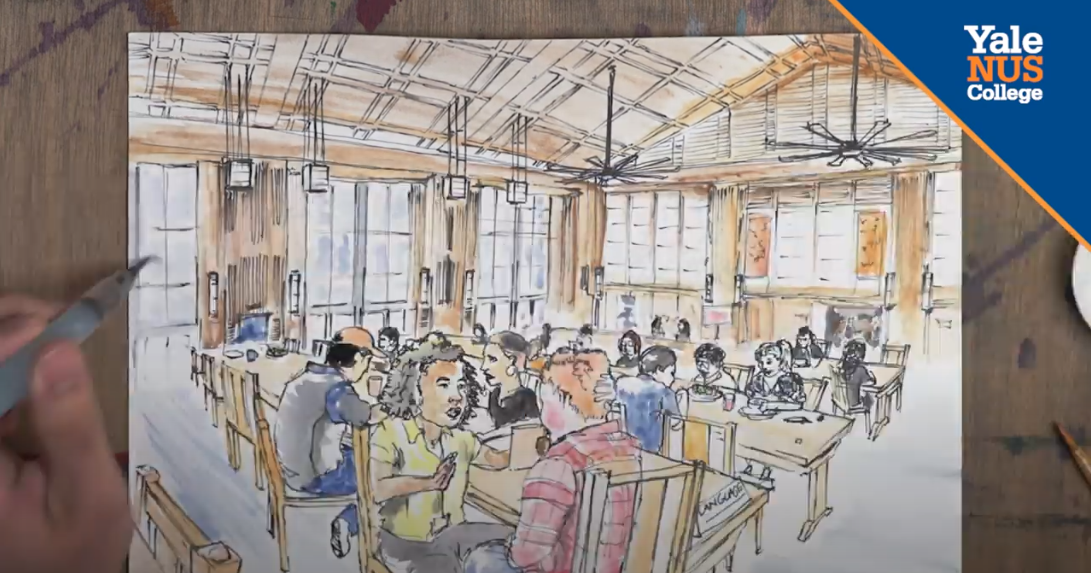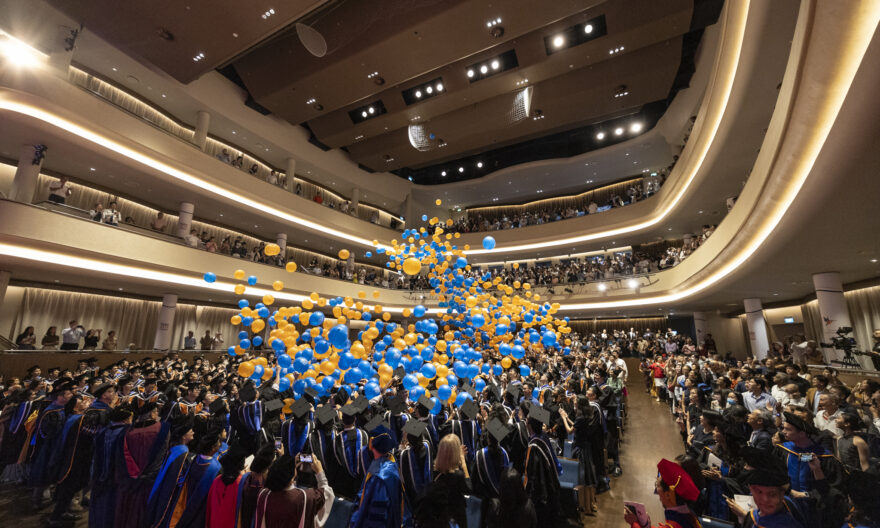Residential Curriculum launched to foster deeper learning and develop life skills within community
 Screenshot of the Yale-NUS College Residential Curriculum video.
Screenshot of the Yale-NUS College Residential Curriculum video.
Residential life at Yale-NUS College is revitalised with the introduction of the new Residential Curriculum this semester.
As an institution, the College has always been dedicated to providing students with a Residential College (RC) experience that offers more than just a place to live.
“The importance of residential life is that it teaches students important life skills, allows them to practise living in a community, and gives them access to engage with people of varying backgrounds,” Associate Director, Residential Education Mr Andrew McGeehan said.
As such, the Residential Curriculum has been introduced this semester through the Dean of Students’ Office to facilitate the development of such life skills in students.
The Curriculum is set to include three main areas: Community Living and Engagement (led by Mr McGeehan), Intercultural Engagement (led by Senior Programme Manager, Intercultural Engagement Ms Sahar Kazemini), and Wellness (led by Programme Manager, Wellness Ms Natalie Ang). Each area has its own specific learning goals and strategies to achieve these goals.
Elements of the curriculum include a financial wellness workshop during the first-year students’ Orientation programme that advances the Wellness curriculum; a “Foundations in Social Justice” workshop series as part of the Intercultural Engagement curriculum; and a consent culture workshop in the Community Living and Engagement curriculum.
Mr McGeehan explained that the new Residential Curriculum allows the team to think clearly about students’ learning objectives and craft strategies to meet them.
“It allows us to be clearer in what we hope to develop in our students and encourages greater collaboration across departments, as we work towards similar goals. It also helps us clarify what our own goals are.”
Dean of Students Dr Dave Stanfield compared the formulation of the Residential Curriculum to the process of planning an academic curriculum at the College. “So much thought and planning informs the development of the Yale-NUS Common Curriculum. We wanted to apply a similar level of intention and coordination to the residential experience,” he said.
“This new model encourages departments across campus to collaborate and reduces programme duplication. Ultimately, the Residential Curriculum increases the likelihood that students will learn and grow in the areas we as a community have agreed are most important,” Dean Stanfield added.
Currently, the Residential Curriculum team has focused on the first-year student experience, through Orientation programmes. Starting next semester, they will begin to roll-out further elements of the Residential Curriculum designed for the rest of the student population.
Supporting this new approach to residential life are the Residential Life Officers (RLOs) in each RC. Previously known as Dean’s Fellows, the Residential Life Officers are staff who provide student support, are on-call to respond to emergencies, and supervise Residential College Advisors (RCAs) – senior students who provide care and guidance to assigned first-year students.
Previously, Dean’s Fellows also held associate positions in various offices across campus (such as Admissions, Intercultural Engagement and Student Organisations). They would have duties such as working with these offices on various projects and events.
With the new changes to the role, RLOs now no longer hold associate responsibilities and can devote their time exclusively to the RCs.
“This will allow them to be a constant and reliable presence in students’ lives,” Mr McGeehan explained.
Residential Life Officer (Saga College) Mr Tinesh Indrarajah agreed strongly with this sentiment. “At the end of the day, my role is to help students go through various challenges they have in a way that is supportive and makes their life easier, while offering critiques that help them grow.”
While the RLOs do not have a direct role in planning the Residential Curriculum, they play a crucial part in making sure the curriculum works to benefit students.
“What we do every day should connect strongly to the goals of the curriculum,” noted Residential Life Officer (Cendana College) Ms Olivia Dure. “It synthesises a connection between residential life in the RCs with programme areas like Intercultural Engagement and Wellness. I think it is a really good step forward, and it’s creating a more cohesive educational system for students while they’re here,” she said.
Yet, Dean Stanfield notes that the curriculum will always remain open to further improvement.
“We will use a variety of methods to gauge what students have learned as a result of participating and adjust accordingly,” he explained.
“The Residential Curriculum will never be complete, rather we will add, tweak and modify it over time,” he added.
Watch this video to learn more about the Yale-NUS Residential Curriculum.





